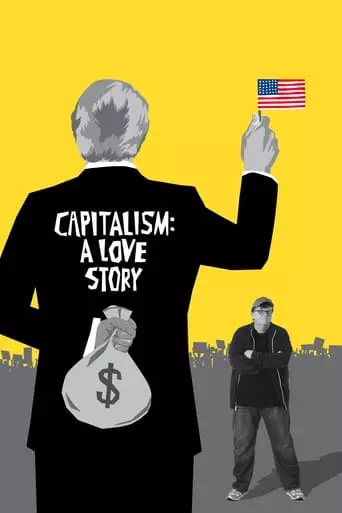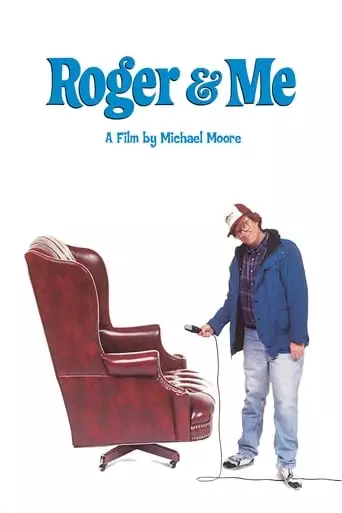To understand firsthand what the United States of America can learn from other nations, Michael Moore playfully “invades” some to see what they have to offer. Where to Invade Next […]

To understand firsthand what the United States of America can learn from other nations, Michael Moore playfully “invades” some to see what they have to offer. Where to Invade Next […]

Michael Moore comes home to the issue he’s been examining throughout his career: the disastrous impact of corporate dominance on the everyday lives of Americans (and by default, the rest […]

A documentary about the closure of General Motors’ plant at Flint, Michigan, which resulted in the loss of 30, 000 jobs. Details the attempts of filmmaker Michael Moore to get […]

This is not a film about gun control. It is a film about the fearful heart and soul of the United States, and the 280 million Americans lucky enough to […]

A documentary about the corrupt health care system in The United States who’s main goal is to make profit even if it means losing people’s lives. The more people you […]
Michael Moore: The Maverick Documentarian Shaping Political Discourse
Michael Moore is an Academy Award-winning filmmaker, author, and activist renowned for his provocative documentaries that challenge societal norms and critique political systems. With films like Bowling for Columbine (2002), Fahrenheit 9/11 (2004), and Sicko (2007), Moore has established himself as a fearless voice in the realm of political and social commentary. His work often sparks debate, highlighting issues of inequality, corruption, and systemic injustice while encouraging audiences to question authority and demand change.
Early Life and Inspiration
Michael Francis Moore was born on April 23, 1954, in Flint, Michigan, a city that would profoundly influence his worldview and filmmaking. Growing up in a working-class family, Moore witnessed the economic decline of Flint following the collapse of the local auto industry, a theme that would feature prominently in his debut film.
Moore’s early career began in journalism. He founded the alternative weekly newspaper The Flint Voice, which provided a platform for investigative reporting and social commentary. This experience honed his skills as a storyteller and laid the groundwork for his transition to filmmaking.
Breakthrough: Roger & Me
Moore burst onto the documentary scene with Roger & Me (1989), a scathing critique of General Motors’ decision to close factories in Flint, resulting in massive job losses.
Plot: The film follows Moore’s attempts to confront then-GM CEO Roger Smith about the devastating impact of the closures.
Style: Blending humor, pathos, and sharp criticism, the film introduced Moore’s signature style of personal, confrontational documentary filmmaking.
Impact: Roger & Me was a critical and commercial success, bringing attention to the plight of working-class Americans and establishing Moore as a bold new voice in cinema.
Tackling Gun Violence: Bowling for Columbine
In 2002, Moore released Bowling for Columbine, an exploration of gun violence in America and the cultural factors contributing to it.
Themes: The film examines the Columbine High School massacre, the NRA’s influence, and America’s obsession with firearms.
Style: Moore’s use of dark humor and poignant interviews, including one with NRA President Charlton Heston, garnered widespread attention.
Awards: The film won the Academy Award for Best Documentary Feature and remains one of the most impactful documentaries of all time.
Political Critique: Fahrenheit 9/11
Moore’s most commercially successful film, Fahrenheit 9/11 (2004), took aim at the Bush administration’s response to the September 11 attacks and the subsequent Iraq War.
Content: The film investigates the connections between the Bush family and Saudi officials, the media’s role in promoting the war, and the human cost of the conflict.
Reception: While polarizing, the film became the highest-grossing documentary in history, earning over $220 million worldwide.
Awards: It won the Palme d’Or at the Cannes Film Festival, a rare honor for a documentary.
Healthcare and Economic Inequality
Moore continued to tackle pressing societal issues with films like:
Sicko (2007): A critique of the American healthcare system, highlighting the inefficiencies and inequities compared to systems in other countries.
Capitalism: A Love Story (2009): An examination of the 2008 financial crisis and the broader implications of unchecked capitalism on American society.
Hallmarks of Michael Moore’s Filmmaking
Moore’s documentaries are characterized by their bold, unapologetic approach to controversial topics.
Personal Narration: Moore often appears on-screen, guiding viewers through his investigations and providing a personal perspective.
Confrontational Style: His willingness to directly challenge powerful figures and institutions sets his work apart.
Blending Humor and Gravitas: Moore uses humor to engage audiences while addressing serious issues, making his films both accessible and impactful.
Focus on the Underdog: His films amplify the voices of marginalized and working-class individuals, shedding light on systemic injustices.
Influence and Legacy
Michael Moore has redefined the documentary genre, proving that non-fiction films can be both commercially successful and socially transformative.
Cultural Impact: His work has sparked national and international debates on issues ranging from gun control to healthcare reform.
Inspiring Activism: Moore’s films often serve as a call to action, encouraging viewers to challenge societal norms and fight for change.
Awards and Recognition: Beyond his Academy Award, Moore has received numerous accolades, including the Writers Guild of America Award and Emmy nominations for his television work.
Recent Work and Future Projects
In recent years, Moore has continued to address contemporary issues with films like Where to Invade Next (2015), which critiques American foreign policy and explores progressive policies in other countries, and Fahrenheit 11/9 (2018), a searing analysis of the Trump presidency and the state of American democracy.
Moore remains an active voice in political discourse, using his platform to advocate for progressive causes and challenge the status quo.
Conclusion
Michael Moore’s career is a testament to the power of documentary filmmaking as a tool for social change. With his fearless approach to controversial topics, he has inspired audiences to question authority, demand accountability, and strive for a more just society. As he continues to tackle new challenges, Moore’s legacy as a pioneering filmmaker and activist remains firmly established.